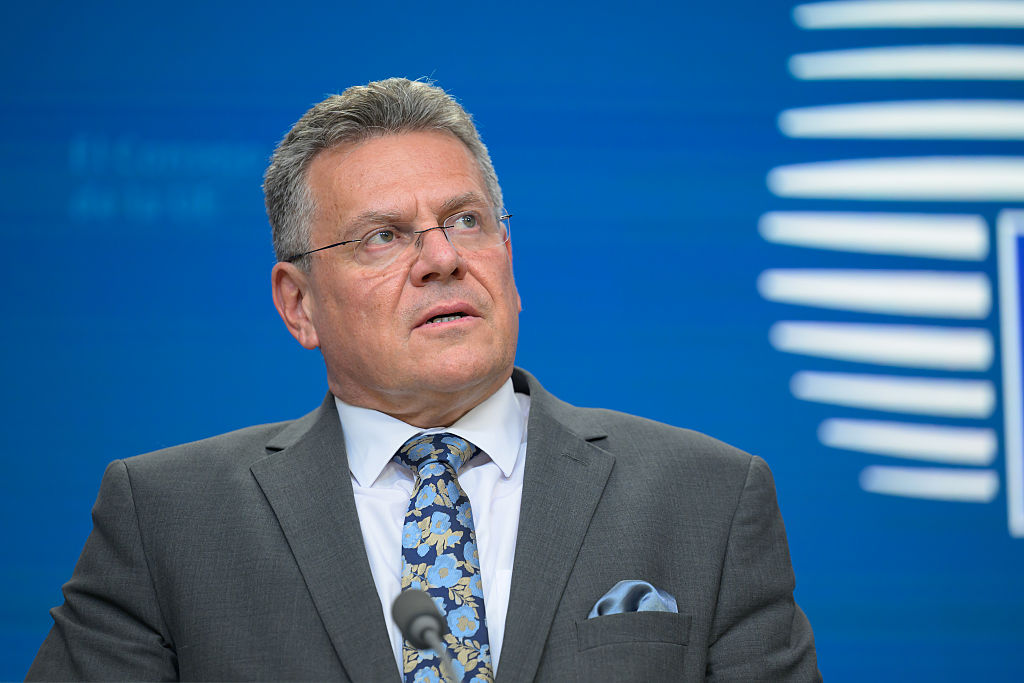Brussels wants to expand on the EU-US trade deal by teaming up with Washington on protections for steel imports as soon as October, EU Commissioner Maroš Šefčovič told Euractiv in an exclusive interview.
“We are going to adopt by mid-October a very strong trade protection measure,” the veteran commissioner said, adding that the EU and US faced the same challenge of “global overcapacity”.
China accounts for more than half of global steel production, and the EU’s share has slipped significantly in the past decade.
Asked if China was the main target of the new measures, he said “they are not the only ones”.
“We will be simply looking at overall imports from where they would come to the European market,” he said.
The EU’s current steel safeguards, initially imposed during Donald Trump’s first presidency, will expire next year.
Trump this year imposed 50% tariffs on most foreign steel, including European, and did not remove them in the trade deal he struck with the Commission in July.
However, the deal includes a commitment by both sides to “strengthen economic security alignment” – which is broadly understood to mean combating China’s unfair trading practices.
The US steel import duties have alarmed Europe’s long-struggling steel industry, which is worried that even more cheap Chinese steel exports could be redirected from the US to Europe.
“We lost 60 million tons of our production capacity since 2008,” Šefčovič said. “We are the only region in the world where the production is actually decreasing,” he added.
The EU’s share of global steel production has dropped from 9.4% to 6.9% since 2014, according to World Steel Association data.
Šefčovič also said that the EU is considering bringing in “very strong tracing features” to stop exporters from masking the product’s true origin.
The Slovak commissioner, now in charge of economic security too, also aims to strike a free trade agreement with India – another significant exporter of steel – by the end of the year.
Sofia Sánchez Manzanaro and Nikolaus J. Kurmayer contributed reporting.
